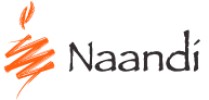
i
Don Bosco Tech
Society
Filter interviews by
Don Bosco Tech Society Interview Questions and Answers
10 Interview questions
Coping with L3 tickets involves prioritizing, collaborating with team members, seeking help when needed, and maintaining a positive attitude.
Prioritize tickets based on urgency and impact on users
Collaborate with team members to share workload and knowledge
Seek help from seniors or experts when stuck on a complex issue
Maintain a positive attitude and focus on problem-solving
Taper angle in a lathe machine can be calculated using trigonometry and the formula: Taper angle = arctan((D1 - D2) / L)
Measure the diameter at the larger end of the taper (D1)
Measure the diameter at the smaller end of the taper (D2)
Measure the length of the taper (L)
Use the formula: Taper angle = arctan((D1 - D2) / L) to calculate the taper angle
Up milling is when the cutter rotates against the direction of feed, while down milling is when the cutter rotates in the same direction as the feed.
In up milling, the chip thickness decreases from the start of the cut to the end, while in down milling, the chip thickness increases.
Up milling is safer and produces a better surface finish, but down milling is more commonly used due to its lower cutting forces.
Examp...
Different types of lathe machines include engine lathe, turret lathe, and CNC lathe.
Engine lathe: most common type, manually operated for general purpose machining
Turret lathe: automated tooling system for high volume production
CNC lathe: computer-controlled for precision and complex machining tasks
I can make various types of garments including shirts, pants, dresses, skirts, and jackets.
Shirts
Pants
Dresses
Skirts
Jackets
Yes, I can make gents shirt.
I have experience in sewing and stitching.
I can take measurements and cut fabric accordingly.
I can follow a pattern or create my own design.
I have knowledge of different types of fabrics and their properties.
I can add details such as buttons, collars, and cuffs.
I can ensure the shirt fits well and is comfortable to wear.
Learned various programming languages, problem-solving skills, teamwork, and time management.
Studied programming languages such as Java, C++, and Python
Developed problem-solving skills through coding assignments and projects
Worked in teams on group projects to enhance collaboration and communication
Managed time effectively to balance coursework, projects, and extracurricular activities
IC engine stands for internal combustion engine, which generates power by burning fuel inside the engine. EC engine stands for external combustion engine, which generates power by burning fuel outside the engine.
IC engine: Generates power by burning fuel inside the engine, examples include gasoline and diesel engines.
EC engine: Generates power by burning fuel outside the engine, examples include steam engines and ...
One gear making method is hobbing, where a hobbing machine uses a cutting tool called a hob to cut teeth into a blank gear.
Hobbing is a common gear making method used in industries.
The hobbing machine rotates the blank gear while the hob cuts the teeth into it.
Hobbing is a precise and efficient method for producing gears with accurate tooth profiles.
Other gear making methods include milling, shaping, and grinding.
...
Heat treatment processes involve heating and cooling metals to alter their physical and mechanical properties. Machine tools are devices used to shape and cut materials.
Heat treatment processes include annealing, quenching, tempering, and case hardening
Machine tools include lathes, milling machines, drills, and grinders
Examples of heat treatment processes: annealing softens metal, quenching hardens it, tempering r...
Don Bosco Tech Society Interview Experiences
11 interviews found
(2 Questions)
- Q1. What was learned in bachleors
- Ans.
Learned various programming languages, problem-solving skills, teamwork, and time management.
Studied programming languages such as Java, C++, and Python
Developed problem-solving skills through coding assignments and projects
Worked in teams on group projects to enhance collaboration and communication
Managed time effectively to balance coursework, projects, and extracurricular activities
- Q2. How to cope up with l3 tickets
- Ans.
Coping with L3 tickets involves prioritizing, collaborating with team members, seeking help when needed, and maintaining a positive attitude.
Prioritize tickets based on urgency and impact on users
Collaborate with team members to share workload and knowledge
Seek help from seniors or experts when stuck on a complex issue
Maintain a positive attitude and focus on problem-solving
Create a project plan for sql deploymenyt
I applied via Referral and was interviewed in Sep 2024. There was 1 interview round.
(2 Questions)
- Q1. Family background
- Q2. Education details
Interview Preparation Tips
I applied via Job Portal and was interviewed in Feb 2024. There was 1 interview round.
(1 Question)
- Q1. What are your hobbies
Interview Preparation Tips
I applied via Walk-in

(1 Question)
- Q1. About ourselves About previous technical knowledge
(1 Question)
- Q1. About ourselves About communication skill Document verification
I applied via Approached by Company and was interviewed in Apr 2023. There were 3 interview rounds.

(2 Questions)
- Q1. How many types of garments you can make
- Ans.
I can make various types of garments including shirts, pants, dresses, skirts, and jackets.
Shirts
Pants
Dresses
Skirts
Jackets
- Q2. Can you make gents shirt?
- Ans.
Yes, I can make gents shirt.
I have experience in sewing and stitching.
I can take measurements and cut fabric accordingly.
I can follow a pattern or create my own design.
I have knowledge of different types of fabrics and their properties.
I can add details such as buttons, collars, and cuffs.
I can ensure the shirt fits well and is comfortable to wear.
(4 Questions)
- Q1. No questions required
- Q2. What was your experience with last company
- Q3. Why do you chane job
- Q4. Last salary receipt
I applied via Recruitment Consulltant and was interviewed before Nov 2023. There were 2 interview rounds.
(2 Questions)
- Q1. How many years experience
- Ans.
I have 8 years of experience in managing various centers in the retail industry.
8 years of experience in center management
Managed multiple centers in the retail industry
Implemented successful strategies to improve center performance
- Q2. How can you manage your centre
(2 Questions)
- Q1. Congratulations you are selected for the centre manager and your joining date ...
- Q2. What is your salary expectation
Interview Preparation Tips
I applied via Job news and was interviewed before Oct 2022. There were 2 interview rounds.

(6 Questions)
- Q1. What is the heat treatment processes? What are the different types of machine tools?
- Ans.
Heat treatment processes involve heating and cooling metals to alter their physical and mechanical properties. Machine tools are devices used to shape and cut materials.
Heat treatment processes include annealing, quenching, tempering, and case hardening
Machine tools include lathes, milling machines, drills, and grinders
Examples of heat treatment processes: annealing softens metal, quenching hardens it, tempering reduce...
- Q2. Explain any one of gear making method. What's the instructions about industrial safety?
- Ans.
One gear making method is hobbing, where a hobbing machine uses a cutting tool called a hob to cut teeth into a blank gear.
Hobbing is a common gear making method used in industries.
The hobbing machine rotates the blank gear while the hob cuts the teeth into it.
Hobbing is a precise and efficient method for producing gears with accurate tooth profiles.
Other gear making methods include milling, shaping, and grinding.
Indus...
- Q3. What are the different types of lathe machines?
- Ans.
Different types of lathe machines include engine lathe, turret lathe, and CNC lathe.
Engine lathe: most common type, manually operated for general purpose machining
Turret lathe: automated tooling system for high volume production
CNC lathe: computer-controlled for precision and complex machining tasks
- Q4. How to calculate taper angle in Lathe machine?
- Ans.
Taper angle in a lathe machine can be calculated using trigonometry and the formula: Taper angle = arctan((D1 - D2) / L)
Measure the diameter at the larger end of the taper (D1)
Measure the diameter at the smaller end of the taper (D2)
Measure the length of the taper (L)
Use the formula: Taper angle = arctan((D1 - D2) / L) to calculate the taper angle
- Q5. What is ic engine and ec engine?
- Ans.
IC engine stands for internal combustion engine, which generates power by burning fuel inside the engine. EC engine stands for external combustion engine, which generates power by burning fuel outside the engine.
IC engine: Generates power by burning fuel inside the engine, examples include gasoline and diesel engines.
EC engine: Generates power by burning fuel outside the engine, examples include steam engines and Stirl...
- Q6. Differentiate up milling and down milling
- Ans.
Up milling is when the cutter rotates against the direction of feed, while down milling is when the cutter rotates in the same direction as the feed.
In up milling, the chip thickness decreases from the start of the cut to the end, while in down milling, the chip thickness increases.
Up milling is safer and produces a better surface finish, but down milling is more commonly used due to its lower cutting forces.
Examples: ...
Interview Preparation Tips
- Manufacturing Technology
- Workshop practice
- Engineering materials
- Advanced machine tools
- Industrial Safety
I applied via Referral and was interviewed in Mar 2021. There were 3 interview rounds.
Interview Questionnaire
1 Question
- Q1. Details about your profile and experience.
Interview Preparation Tips
I applied via Other and was interviewed in Dec 2020. There were 3 interview rounds.
Interview Questionnaire
1 Question
- Q1. They ask about your previous experience and some questions from future skills
Interview Preparation Tips
I applied via Referral and was interviewed in Feb 2021. There were 2 interview rounds.
Interview Questionnaire
2 Questions
- Q1. People were known to me
- Q2. I knew the people in the organisation
Interview Preparation Tips
Top trending discussions






Don Bosco Tech Society Interview FAQs
Some of the top questions asked at the Don Bosco Tech Society interview -
The duration of Don Bosco Tech Society interview process can vary, but typically it takes about less than 2 weeks to complete.
Tell us how to improve this page.
Don Bosco Tech Society Interviews By Designations
- Don Bosco Tech Society Trainer Interview Questions
- Don Bosco Tech Society Center Manager Interview Questions
- Don Bosco Tech Society Faculty and Lab Instructor Interview Questions
- Don Bosco Tech Society Data Analyst Interview Questions
- Don Bosco Tech Society Communicative English Trainer Interview Questions
- Don Bosco Tech Society Technology Intern Interview Questions
- Don Bosco Tech Society Senior Executive Interview Questions
- Don Bosco Tech Society Electrical Trainer Interview Questions
- Show more
Interview Questions for Popular Designations
Overall Interview Experience Rating
based on 8 interview experiences
Difficulty level
Duration
Interview Questions from Similar Companies
Don Bosco Tech Society Reviews and Ratings
based on 167 reviews
Rating in categories
|
Trainer
17
salaries
| ₹1.9 L/yr - ₹3.4 L/yr |
|
Hospitality Trainer
9
salaries
| ₹2.2 L/yr - ₹3.2 L/yr |
|
Faculty
7
salaries
| ₹1.1 L/yr - ₹4.8 L/yr |
|
Center Manager
5
salaries
| ₹3.4 L/yr - ₹3.6 L/yr |
|
Project Coordinator
5
salaries
| ₹3.1 L/yr - ₹3.6 L/yr |

Labournet Services

ICICI Foundation for Inclusive Growth

UNICEF

Bandhan KOnnagar
- Home >
- Interviews >
- Don Bosco Tech Society Interview Questions












